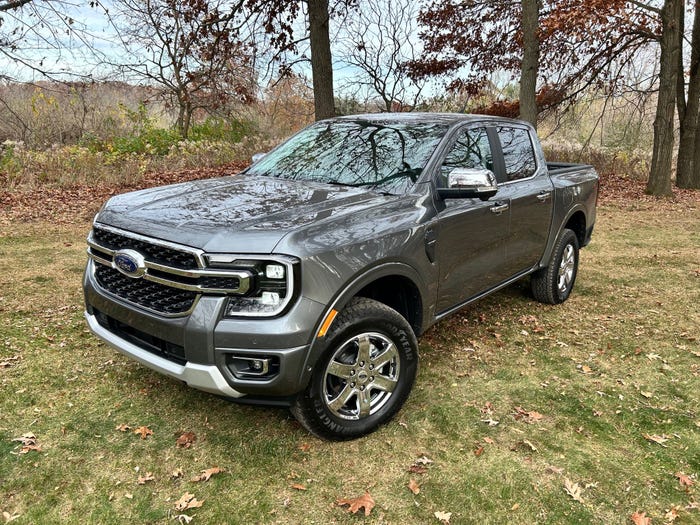Local UAW-GM Tiff May Herald Fractious Contract Talks
The dispute at Wentzville illustrates workers’ concerns over eroding perquisites, imposition of alternative work schedules and other work-rule concessions. Management insists the changes have improved efficiency and competitiveness.
April 13, 2015

General Motors and the United Auto Workers resolve a shop-floor dispute at the automaker’s Wentzville, MO, assembly plant, but the underlying tensions that erupted are symptomatic of a rising tide of discontent among workers at GM, Ford and FCA US that will play out during contract negotiations this year.
Forty-one workers dismissed at the plant near St. Louis for what was described as an illegal work stoppage have been reinstated with back pay, according to Facebook posts initiated by employees.
GM spokesman William Grotz says the matter has been closed. “GM Wentzville resolved a local issue with employees. Our policy does not allow us to disclose information on employee matters,” Grotz says in an e-mail.
UAW Vice President Cindy Estrada adds: “We have a long history of being able to work through situations with General Motors. This is another example of a successful resolution. We are happy to have our members back at work and creating quality products.”
The dispute at Wentzville, however, illustrates workers’ concerns over the erosion of perquisites, alternative work schedules, the combination of classifications and other work-rule concessions imposed under contracts negotiated during the industry’s financial crisis over the past decade.
Management insists the changes have improved efficiency and made the plants more competitive with Japanese transplants. But the changes also have put more pressure on workers.
Work in auto plants today is much “cleaner and lighter,” a former UAW official says, explaining workers don’t have to use as much muscle and the factory environment has improved significantly with the elimination of grease and toxic fumes. However, the pace is faster and there is less down time between jobs on an assembly line because there are fewer hands.
Management also has gained more control over hourly workers’ schedules.
UAW President Dennis Williams touched on the issue recently when he said the union has to take greater “ownership” of the systems used by automakers to raise productivity and production.
Workers at FCA US have complained for more than two years over the automaker’s use of alternative work schedules, which came in for heavy criticism during last month’s UAW bargaining convention in Detroit. Alternative work schedules require workers to move from days to afternoon shifts within the same week.
“The alternative work schedule needs to go. The (U.S. Centers for Disease Control and Prevention) reported that it is a health and safety issue,” Robert Stafford, a FCA worker from Indiana, says in a post on the Autoworkers Facebook page. His sentiments are fairly common among FCA employees.
Gary Walkowicz, a committeeman at the Ford’s Dearborn, MI, assembly plant and a critic of the UAW’s leadership, noted in a letter to delegates to the UAW bargaining convention that new work rules amount to a speedup.
“The small numbers of jobs we have regained recently have been mostly due to increased production. But today we are producing as many vehicles as 30 years ago, with half the number of workers. It is this speedup that has eliminated many thousands of jobs,” Walkowicz wrote.
New work rules that combine job classifications and require workers to rotate to another job also have eroded the traditional seniority system that more or less guaranteed workers better, or at least easier, jobs as they got older or worked more years.
All of these issues, which along with the 2-tier pay scales, lack of pay increases and wider use of temporary and contract workers seem to come into play at Wentzville, where GM’s local managers are under pressure to fill orders for one of the automaker’s hottest products, the new Chevrolet Colorado and GMC Canyon compact pickup trucks.
The confrontation at Wentzville began the evening of March 20 when workers were summoned to report for overtime on the third-shift truck-body line.
“When they came in they were told to report to the team center that they were not going to run new (bodies) that evening because they had scheduled maintenance,” according to Jason Flauaus, a Wentzville worker whose account of the incident appeared on a Facebook posting by Terri Crial Norris, another Wentzville employee.
But management had goofed and said “everyone was going to van body” instead of to their regular assignments on the truck line, Flauaus wrote.
“Instantly there was a showing of solidarity and all seniority workers refused to be forced into job rotation – job rotation does not exist at Wentzville as it undermines seniority,” Flauaus said. “They didn’t refuse to work. They would have gladly done their jobs.”
During the ensuing argument, a union representative was called as well as representatives from GM’s local labor relations staff. “All the temps and 90-day employees were told by the Union to go where management wanted. Another 41 workers were ordered to go to the van body shop but refused, and GM fired them over the course of four hours, according to Flauaus.
Grievances were filed and the workers were reinstated March 31, according to the Autoworkers Facebook page.
“Those 41 brave individuals…stood against GM for what was right, they sent a message that even though our product is needed you will not walk all over the workforce,” Flauaus wrote.
About the Author
You May Also Like



